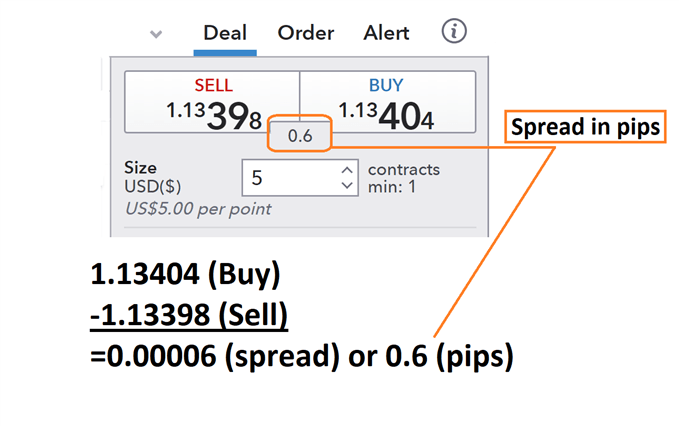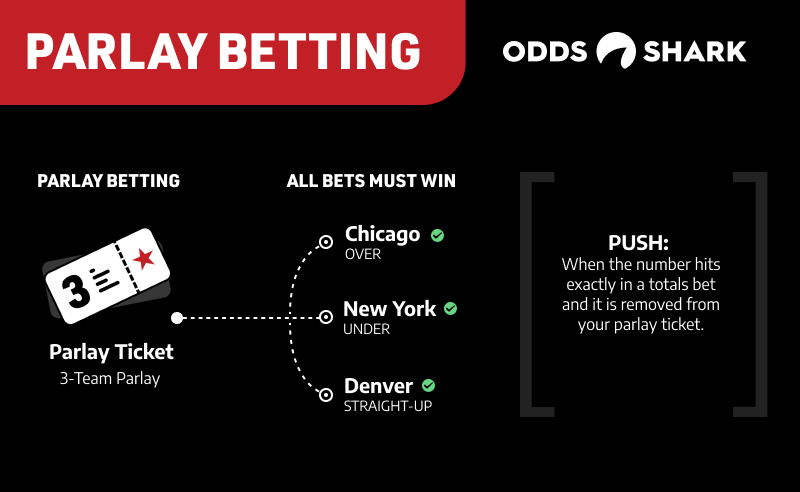What Does It Mean To Cover The Spread
As a fan, you don’t care if your team wins by a point or 100. A win is a win, though that 100-point win would be a little easier on the nerves.
You wager $110 on the Chiefs to cover the spread. The final score is 24-13 in favor of the Chiefs, which means Kansas City covers as a 7.5-point favorite. You win $100, and your total payout would be $210. You wager $110 on the Chiefs to cover the spread. Now we can define what “ Cover The Spread ” means, which is when the favorite wins the event by more than the point total given by the lines makers. If the opposite happens the underdog wins with the additional points given. When a spread is created it goes beyond classifying a team as either a.
- What Does Covering the Spread Mean? “Covering the spread” is another way to say that a team won a point spread bet. In the above example, Ohio State winning by 7 points or more as a -6.5 favorite means they covered the spread. If Penn State lost by 6 points.
- Inside front cover double page spread What is the ticker symbol for Cover Girl? CoverGirl, the cosmetics brand, is a subsidiary of Procter and Gamble, and does not have its own ticker symbol.
In sports betting, how much a team wins by is usually all that matters.
The most popular way to bet for the two most popular sports, basketball and football, is with the point spread, also known as the “side.” Most baseball, hockey and soccer bets are on the moneyline, which is betting on a team to win straight up with adjusted odds. Football and basketball have moneyline bets available too, but most people will take the point spread.
The concept can be a bit confusing if you’ve never dabbled in sports betting before.
Why bet with the point spread?
The point spread was created to attract more action on a game. When the San Francisco 49ers are expected to blow out the Arizona Cardinals, it’s not enticing to lay $300 to win $100 on a moneyline. But when the 49ers are 11-point favorites and each side is -110 odds? That’s much easier.
In that example, the 49ers are spotting the Cardinals 11 points before the game starts, at least for bettors. The 49ers have to win by 12 or more points to cover the spread. If the Cardinals win or lose by 10 or less, that side wins the bet. If the game lands on 11, like a 21-10 49ers win, it’s a push and all bets are refunded. If you see a -11 that means that team is favored, and +11 means you’re taking the underdog.

Nothing sharpens your math skills better than trying to figure out how big your lead as a bettor is if you have a 22.5-point basketball underdog that is losing 90-72.
The problem with the point spread can be when a team — which really doesn’t care that you bet the favorite at -11 — has a 14-point lead but gives up a meaningless score at the end to win by only seven points. They’re still happy with the win. You, as a bettor, are not.
 © Provided by Yahoo! Sports Sportsbooks have large boards that display point spreads for all games that day. (AP Photo/John Locher, File)
© Provided by Yahoo! Sports Sportsbooks have large boards that display point spreads for all games that day. (AP Photo/John Locher, File)Point spreads lead to bad beats
The most infamous example of a bad beat with the point spread probably came in the 2004 Final Four at the NCAA men’s basketball tournament.
Duke was a 2.5-point underdog against UConn. The Huskies rallied late and took a 79-75 lead on a free throw with 3.2 seconds left. The game itself was over; Duke couldn’t score twice in a few seconds. But Duke guard Chris Duhon pulled up for a running 3-pointer just over the half-court line and banked it in at the buzzer. Duke lost 79-78, but bettors who had Duke and 2.5 points won. March Madness is a huge event for bettors, and reports at the time estimated that Duhon’s “meaningless” shot resulted in a $30 or $40 million swing in Nevada. UConn players celebrated at the final buzzer. UConn bettors doubled over in pain. That’s the difference between betting the moneyline and the point spread.
Baseball and hockey have point spreads too, the “run line” in baseball and “puck line” in hockey. It’s generally 1.5 with odds adjusting accordingly. Taking a big baseball favorite at -1.5 runs can make the odds more palatable. Of course, betting the New York Yankees at -1.5 to bring down the odds from -190 to -110 isn’t too fun when they win 4-3 and you don’t cash a bet.
Betting on the point spread is the most common way to wager on sports. And the first time you take a favorite that wins the game but doesn’t cover the spread, you’ll understand every bettor’s heartbreak.
(9) Skirt.—Literally wing;What Does It Mean When You Cover The Spread
 Heb. canaph, as in Ruth 2:12. The Targum treats this as in itself the claim to espousal on her part. The metaphor may be illustrated from Ezekiel 16:8, and more generally from Matthew 23:37.3:6-13 What in one age or nation would be improper, is not always so in another age or another nation. Being a judge of Israel, Boaz would tell Ruth what she should do; also whether he had the right of redemption, and what methods must be taken, and what rites used, in order to accomplishing her marriage with him or another person. The conduct of Boaz calls for the highest praise. He attempted not to take advantage of Ruth; he did not disdain her as a poor, destitute stranger, nor suspect her of any ill intentions. He spoke honourably of her as a virtuous woman, made her a promise, and as soon as the morning arrived, sent her away with a present to her mother-in-law. Boaz made his promise conditional, for there was a kinsman nearer than he, to whom the right of redemption belonged.Spread thy skirt ... - The phrase indicates receiving and acknowledging her as a wife. 9. I am Ruth thine handmaid: spread therefore thy skirt over thine handmaid; for thou art a near kinsman—She had already drawn part of the mantle over her; and she asked him now to do it, that the act might become his own. To spread a skirt over one is, in the East, a symbolical action denoting protection. To this day in many parts of the East, to say of anyone that he put his skirt over a woman, is synonymous with saying that he married her; and at all the marriages of the modern Jews and Hindus, one part of the ceremony is for the bridegroom to put a silken or cotton cloak around his bride.Spread thy skirt over thine hand-maid, i.e. take me to be thy wife, and perform the duty of an husband to me. This phrase is used in this sense Deu 22:30 27:20 Ezekiel 16:8. Either, first, Because the wife is admitted into the same bed with her husband, and both are covered with one and the same covering. Or, secondly, From an ancient ceremony of the husband’s throwing the skirt of his garment over her head, in token both of her subjection, 1 Corinthians 11:5,6,10, and appropriation to him, being hereby as it were hid from the eyes of others; see Genesis 20:16; and also of that protection which he oweth to her: see Ruth 2:12.
Heb. canaph, as in Ruth 2:12. The Targum treats this as in itself the claim to espousal on her part. The metaphor may be illustrated from Ezekiel 16:8, and more generally from Matthew 23:37.3:6-13 What in one age or nation would be improper, is not always so in another age or another nation. Being a judge of Israel, Boaz would tell Ruth what she should do; also whether he had the right of redemption, and what methods must be taken, and what rites used, in order to accomplishing her marriage with him or another person. The conduct of Boaz calls for the highest praise. He attempted not to take advantage of Ruth; he did not disdain her as a poor, destitute stranger, nor suspect her of any ill intentions. He spoke honourably of her as a virtuous woman, made her a promise, and as soon as the morning arrived, sent her away with a present to her mother-in-law. Boaz made his promise conditional, for there was a kinsman nearer than he, to whom the right of redemption belonged.Spread thy skirt ... - The phrase indicates receiving and acknowledging her as a wife. 9. I am Ruth thine handmaid: spread therefore thy skirt over thine handmaid; for thou art a near kinsman—She had already drawn part of the mantle over her; and she asked him now to do it, that the act might become his own. To spread a skirt over one is, in the East, a symbolical action denoting protection. To this day in many parts of the East, to say of anyone that he put his skirt over a woman, is synonymous with saying that he married her; and at all the marriages of the modern Jews and Hindus, one part of the ceremony is for the bridegroom to put a silken or cotton cloak around his bride.Spread thy skirt over thine hand-maid, i.e. take me to be thy wife, and perform the duty of an husband to me. This phrase is used in this sense Deu 22:30 27:20 Ezekiel 16:8. Either, first, Because the wife is admitted into the same bed with her husband, and both are covered with one and the same covering. Or, secondly, From an ancient ceremony of the husband’s throwing the skirt of his garment over her head, in token both of her subjection, 1 Corinthians 11:5,6,10, and appropriation to him, being hereby as it were hid from the eyes of others; see Genesis 20:16; and also of that protection which he oweth to her: see Ruth 2:12. Nfl Predictions With Spread Covers
And he said, who art thou?.... He spoke quick and short, as one displeased, or however surprised and frightened, just coming out of sleep, and in the night:
and she answered, I am Ruth thine handmaid; that had gleaned in his fields with his maidens, and with whom he had conversed there, and knew her by name:
spread therefore thy skirt over thy handmaid; which seems to account for the reason of her uncovering his feet, or turning up the skirt of his garment that was upon them; not through wantonness and immodesty, but to direct him, when opportunity offered, to spread it over her as a token of his taking her in marriage, and of her being under his care and protection, and of her subjection to him; so the Targum,'let thy name be called upon me to take me for a wife,'Whether the custom now used with the Jews at marriage, for a man to cast the skirt of his 'talith', or outward garment, over the head of his spouse, and cover it, was in use so early, is questionable; and yet something like it seems to have been done, as this phrase intimates, and to which there is an allusion in Ezekiel 16:8. So Jarchi,'spread the skirt of thy garments to cover me with thy talith, and this is expressive of marriage;'and Aben Ezra says, it intimates taking her to him for wife; though as the word signifies a wing, the allusion may be to the wings of birds spread over their young, to cherish and protect them, which are acts to be done by a man to his wife:
for thou art a near kinsman; as she had been informed by Naomi, to whom the right of redemption of her husband's estate belonged, and in whom it lay to marry her, and raise up seed to his kinsman, her former husband.